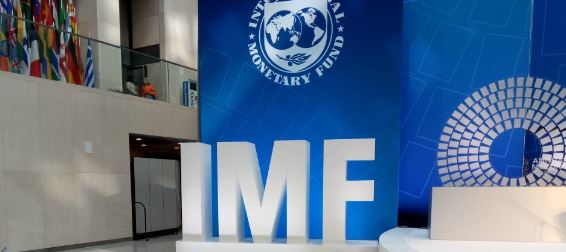The International Monetary Fund (IMF) says the decision by the monetary policy committee (MPC) of the Central Bank of Nigeria (CBN) to increase the interest rate will help contain pressure on the naira.
According to a statement on Monday, the IMF welcomed the decisions after Axel Schimmelpfennig, its mission chief for Nigeria, led a team on a visit to Lagos and Abuja to hold discussions “for the 2024 Article IV Consultation”.
The IMF team met with Wale Edun, minister of finance; Olayemi Cardoso, CBN’s governor; senior government and central bank officials, as well as representatives from sub-nationals, the private sector and civil society.
The lender said the decision of the MPC to further tighten monetary policy will help contain inflation, which reached 29.9 percent year-on-year in January 2024, and pressures on the naira.
“The MPC increased the policy rate by 400 basis points to 22.75 percent for a total tightening of 1,025 basis points since May 2022,” it said.
“This decision should help contain inflation, which reached 29.9 percent year-on-year in January 2024, and pressures on the naira.”
According to the statement, economic growth strengthened in the fourth quarter, with GDP growth reaching 2.8 percent in 2023 — which falls slightly short of population growth dynamics.
The organisation said improved oil production and an expected better harvest in the second half of the year are positive for 2024 GDP growth, which is projected to reach 3.2 percent.
The multilateral lender, however, stressed that high inflation, naira weakness, and policy tightening will provide headwinds.
Addressing rising food insecurity in the country, the team welcomed the authorities’ approval of an effective and well-targeted social protection system.
“The team also welcomed the government’s release of grains, seeds, and fertilizers, as well as Nigeria’s introduction of dry-season farming,” the statement reads.
“Recent improvements in revenue collection and oil production are encouraging. Nigeria’s low revenue mobilization constrains the government’s ability to respond to shocks and to promote long-term development.
“Non-oil revenue collection improved by 0.8 percent of GDP in 2023, helped by naira depreciation. Oil production reached 1.65 million barrels per day in January as the result of enhanced security.
“The capping of fuel pump prices and electricity tariffs below cost recovery could have a fiscal cost of up to 3 percent of GDP in 2024.”
The IMF said the recently approved social safety net program must be fully implemented before the government can make changes to the fuel and electricity subsidies in a manner that will ensure low-income households are protected.
On February 12, the IMF had asked the federal government to completely phase out petrol and electricity subsidies in the country, stating that they are costly.







